
The Artist Of Touching “Good Boy” And “Black Cat” Comics Returns With More Emotional Stories
Interview With ArtistJenny-Jinya’s comics have a way of reaching into your chest and holding your heart in their hands. Her newest stories are no different—they bring to life the struggles of animals who endure pain and suffering because of humans. Each panel tells a story that’s hard to face but impossible to ignore. Whether it’s a senior dog longing for a home or bears trapped in the cruel bear bile industry, these are lives that matter, and Jenny reminds us of that.
This time, she also brings us the story of a lion, forced to perform under the bright lights of a circus, and the heartbreaking fate of whales hunted in the Faroe Islands. These comics aren’t just about animals—they’re about the impact we leave behind. They’re raw, emotional, and a quiet call to be better.
More info: Instagram | jenny-jinya.com | tiktok.com | Facebook | x.com | patreon.com | ko-fi.com
“A comic about something that shouldn’t be a thing anymore”
Image credits: jenny_jinya
Many of Jenny-Jinya’s comics depict the Grim Reaper in a surprisingly compassionate role. We asked the artist what inspired this unique portrayal and what the Reaper symbolizes to her.
“I have always been heartbroken about the way animals are treated in this world. One look at the news or the accounts of animal rights activists and you can see that animals all over the world have to suffer at the hands of humans. And it feels so bizarre how most people just don’t care, even though so much of it could so easily be avoided. Before I drew the first comic, I had read about abused and abandoned dogs. These animals did nothing wrong but were not allowed to be happy for a single day in their short lives. And then I thought, can’t death at least be kind to them if humans couldn’t?”
“Thousands of bears are suffering in the bear bile industry”
“Forced to endure a lifetime in captivity, they are exploited for their bile – an ingredient used in some traditional medicines that is painfully extracted from the bears’ gallbladder.”
Image credits: jenny_jinya
As Jenny-Jinya’s work continues to gain popularity, we wondered if she feels a growing responsibility to address even more complex or global issues through her art. “That was the case at the beginning, but I almost broke down,” the artist shared. “You WANT to tell stories about everything you hear, you want to save them all, but I had to realize that I’m just one person. I’m not the WWF or Peta, I’m a one-woman show and there’s a whole sea of topics I want to tell stories about. Both for my readers and for myself, I need to tell stories in between that don’t deal with a grievance, to take a breath, to stay sane. Then I go through my list and think about which topic I can come up with a story about. Sometimes organizations also ask if I can take up a certain topic.”
“Senior pets have a hard time getting adopted”
“The likelihood of adoption is only 25% compared to 60% for a younger dog. Unfortunately, this is often due to prejudice.”
Image credits: jenny_jinya
Jenny-Jinya’s comics shed light on a wide range of animal welfare issues, each with its own unique challenges and heartbreaking realities. We asked her how she researches and prepares to illustrate such diverse and complex topics.
“That is very different. Sometimes they are well-known problems and I simply read a lot of articles and often also how it is handled in different countries. Sometimes vets or animal rights activists contact me. Sometimes I get topics suggested by my readers. I take notes as much as I can. Sometimes I have a topic and images and scenes immediately pop into my head that would be suitable for a story. But other times I sit in front of it for weeks and just can’t think of anything. It’s a process, but no matter what, I put my heart and soul into it and I hope the stories reach as many people as possible and raise awareness for those issues.”
“I want to talk about the barbaric whaling in the Faroe Islands, or grindadráp”
It is a type of drive hunting that involves herding various species of whales and dolphins, but primarily pilot whales, into shallow bays to be beached, and butchered. Each year, an average of around 700 long-finned pilot whales and several hundred Atlantic white-sided dolphins are caught over the course of the hunting season during the summer.”
Image credits: jenny_jinya
It was very painful to read, but sadly, it was very true. This planet would be a much better place without us.
It was very painful to read, but sadly, it was very true. This planet would be a much better place without us.

 Dark Mode
Dark Mode 

 No fees, cancel anytime
No fees, cancel anytime 


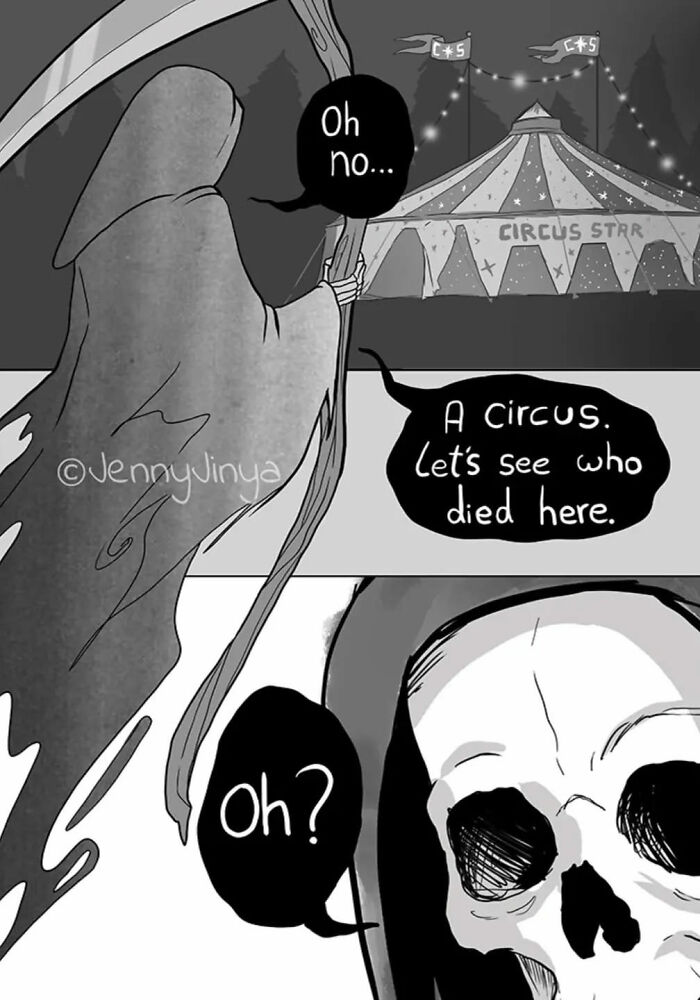
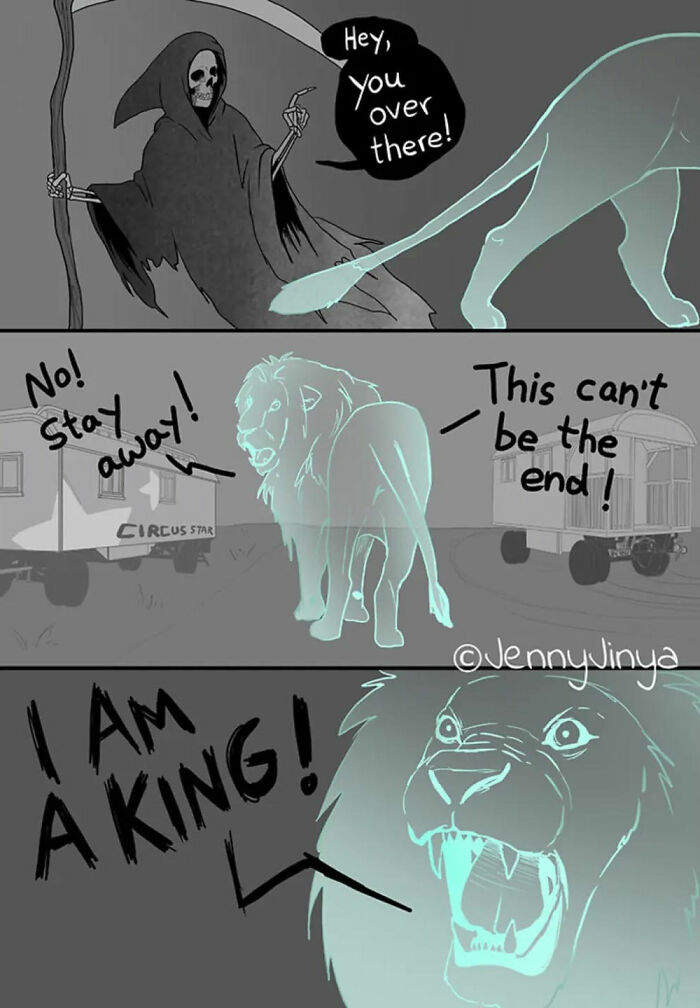
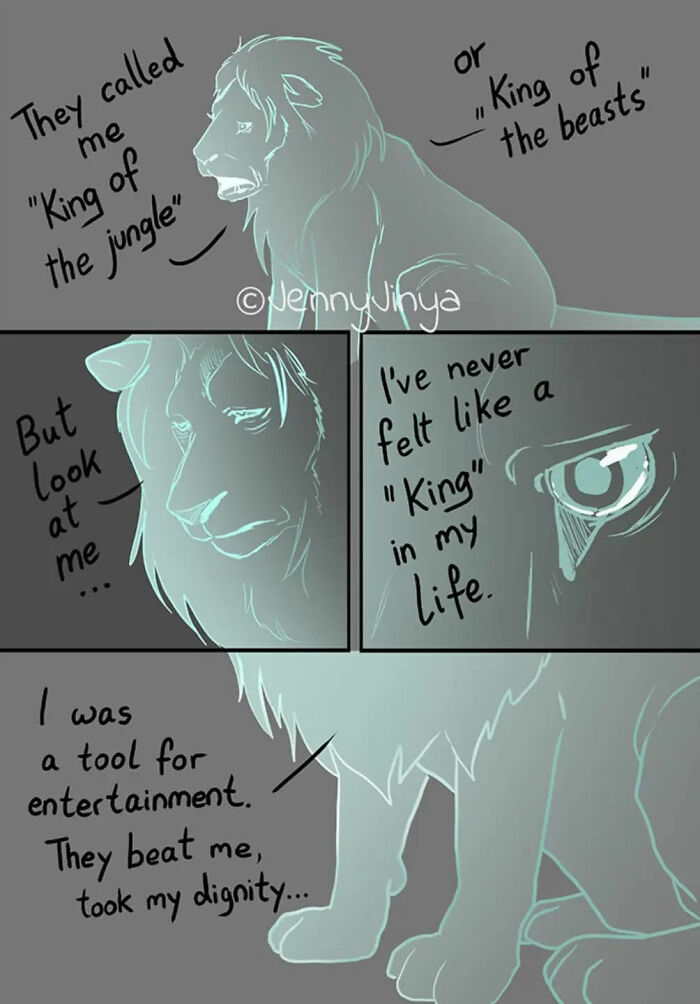
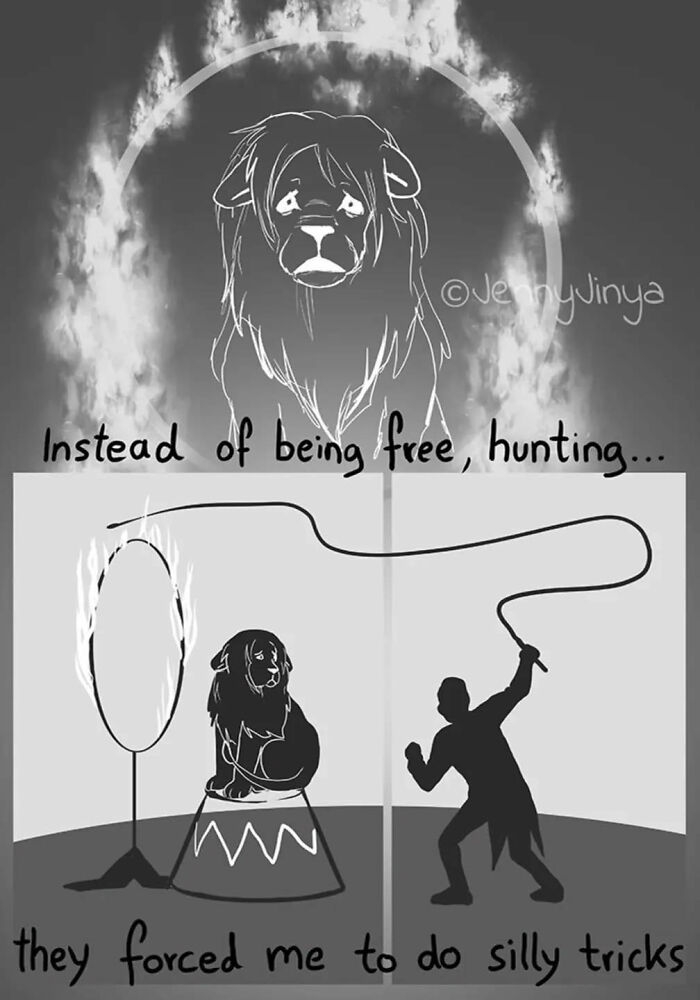
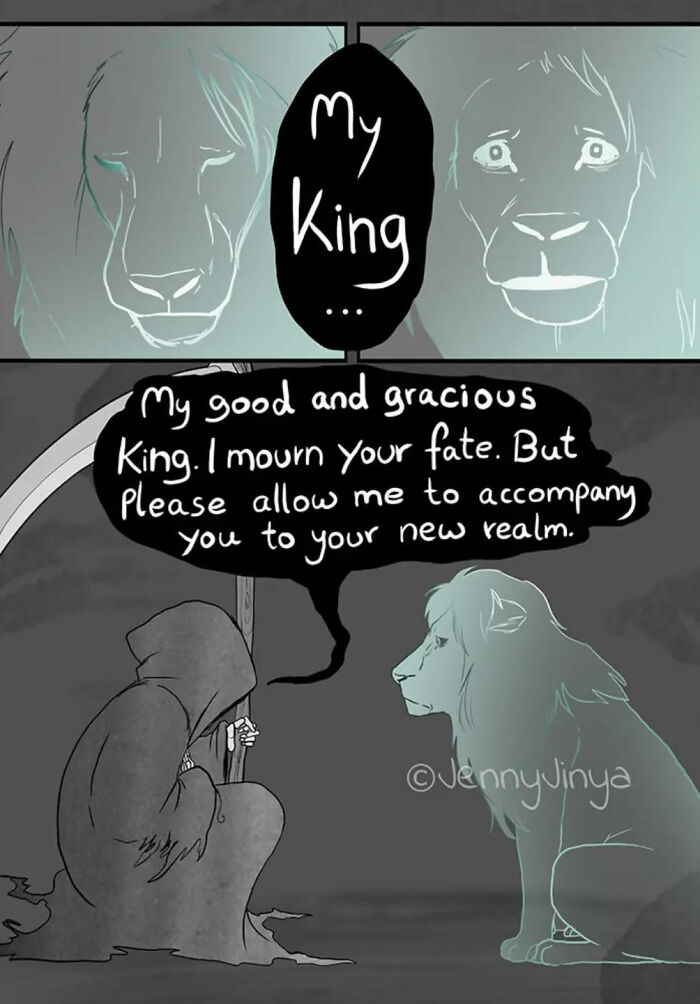
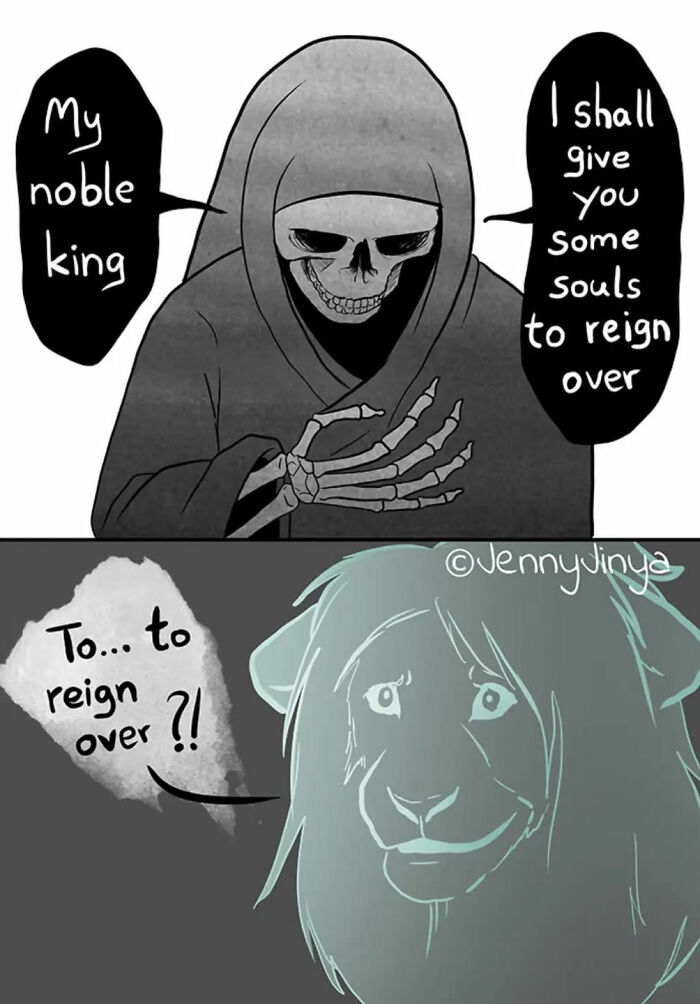
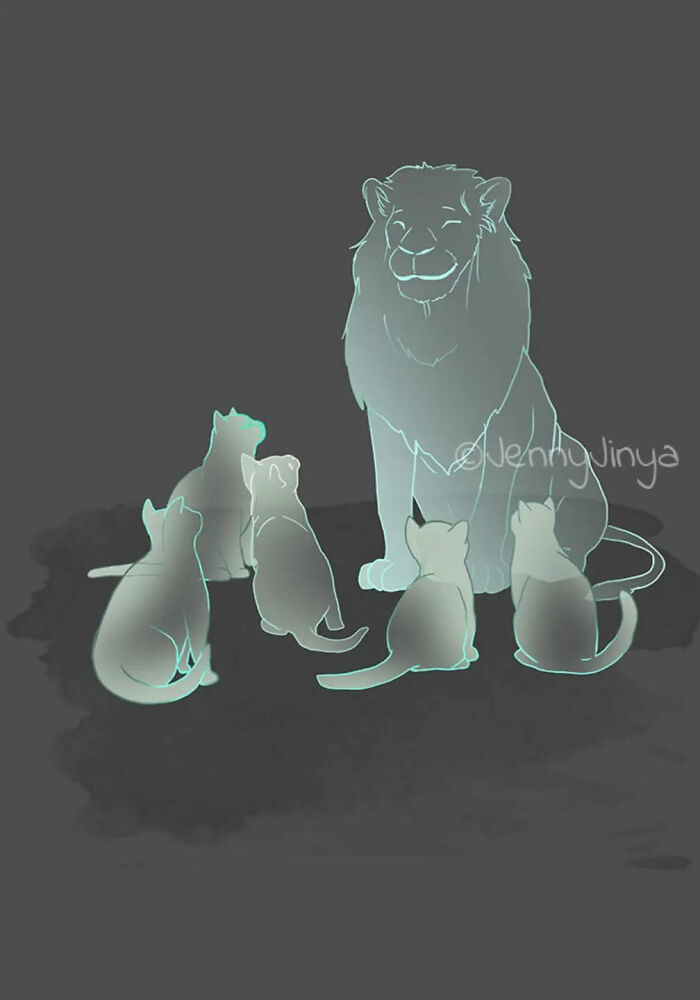
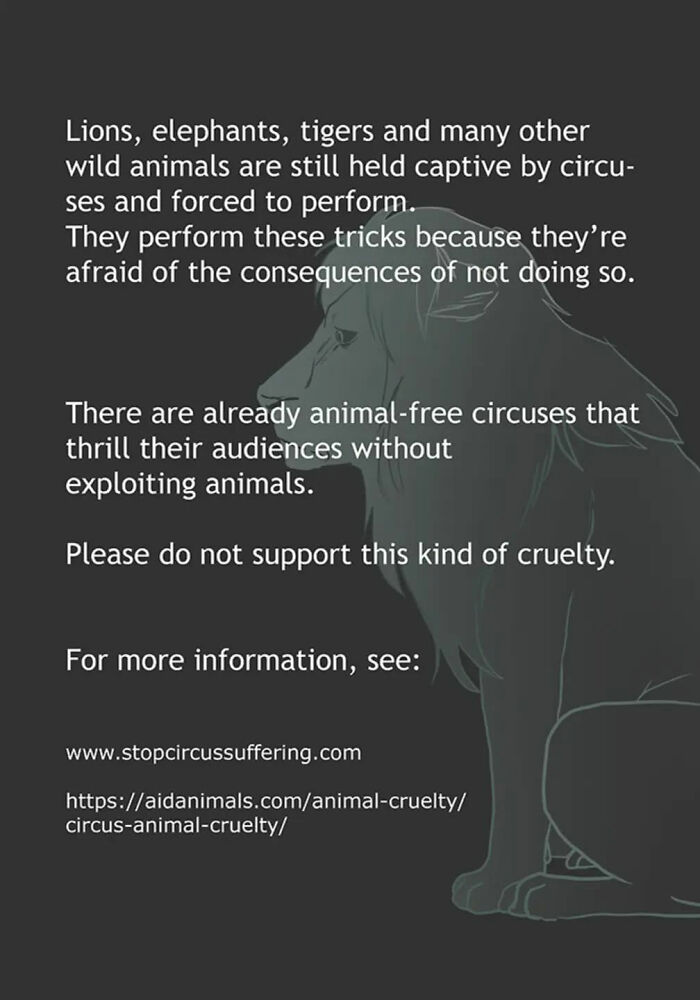
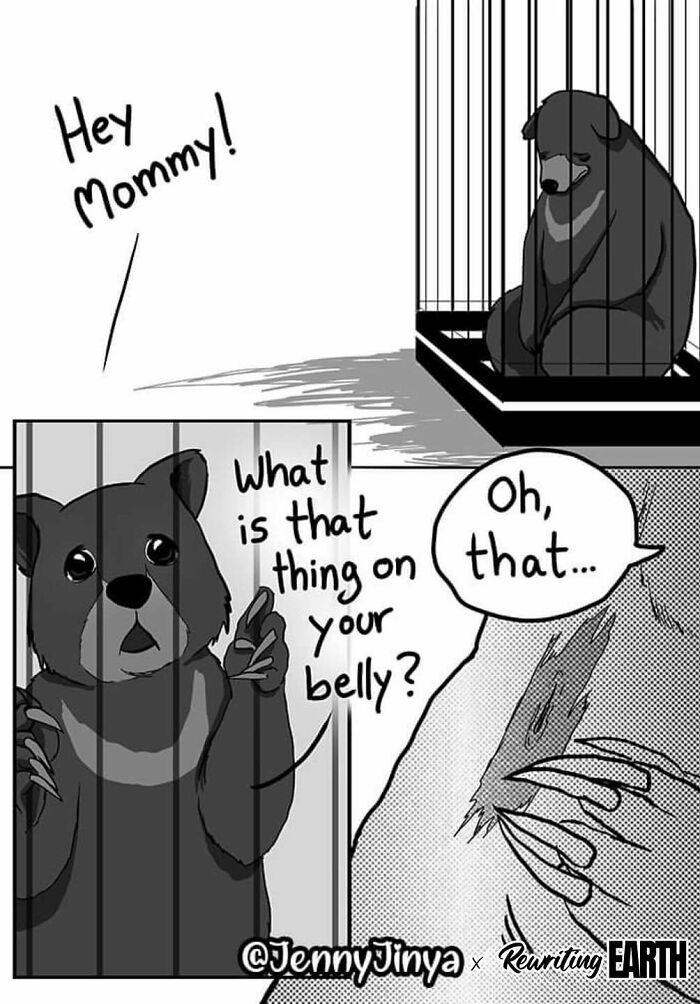
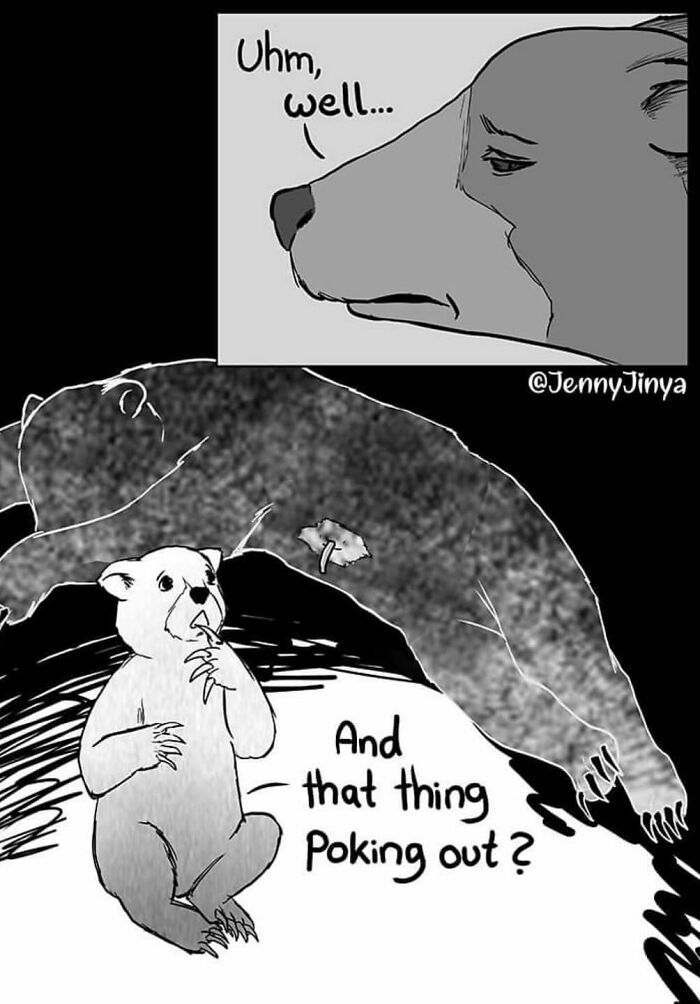
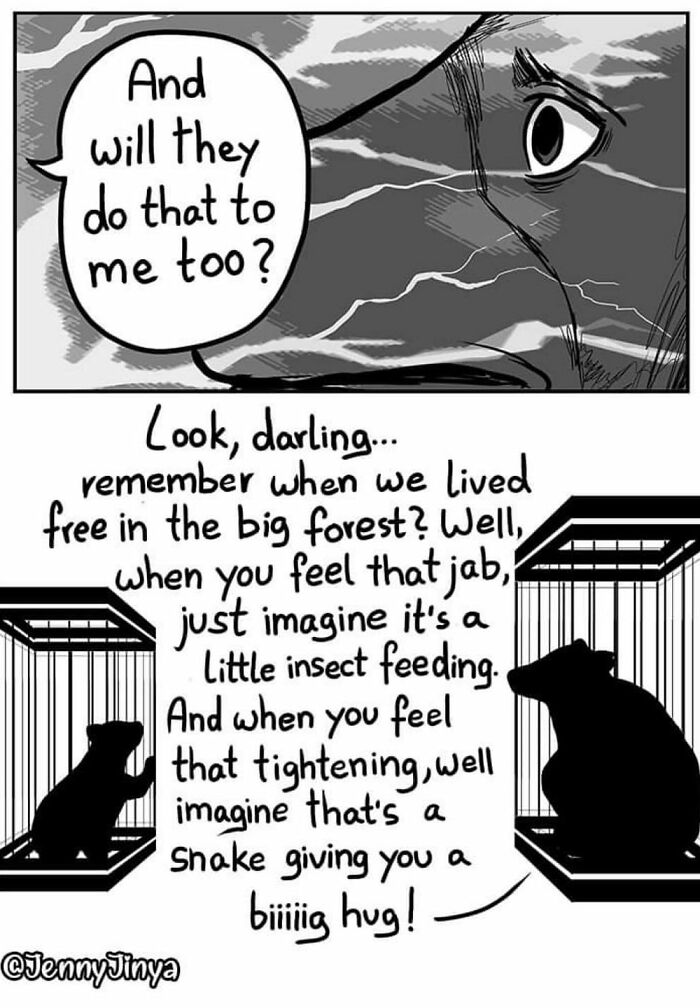
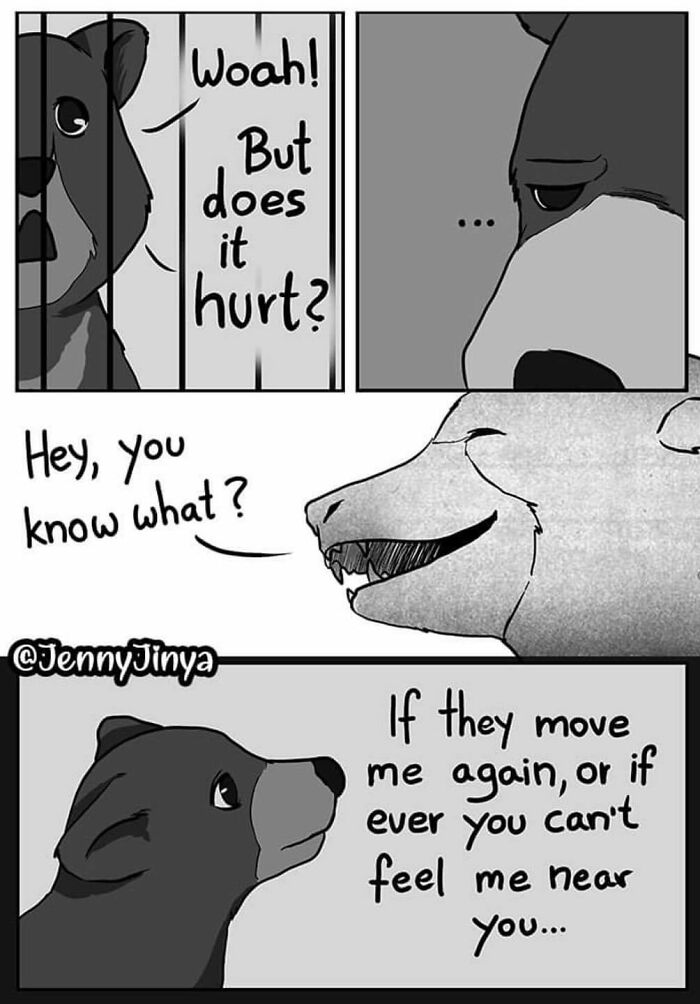
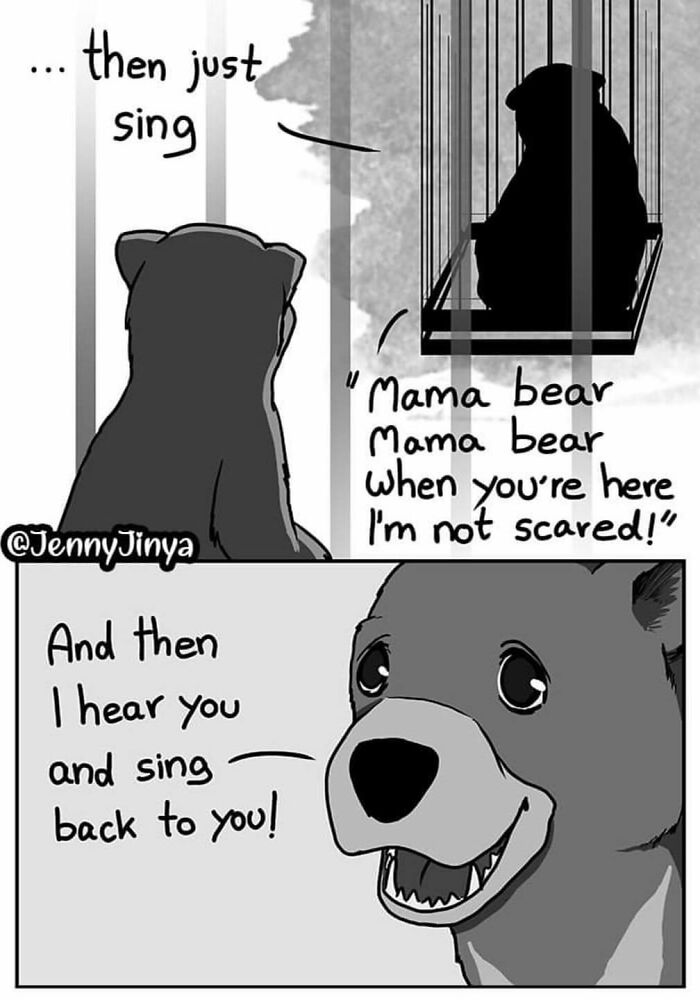
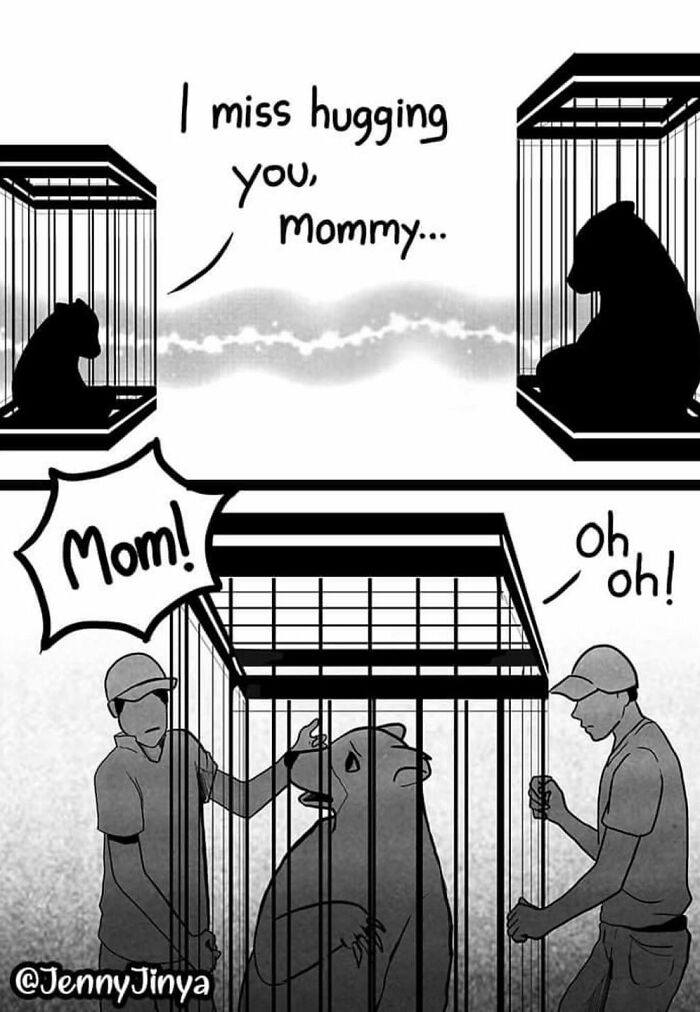
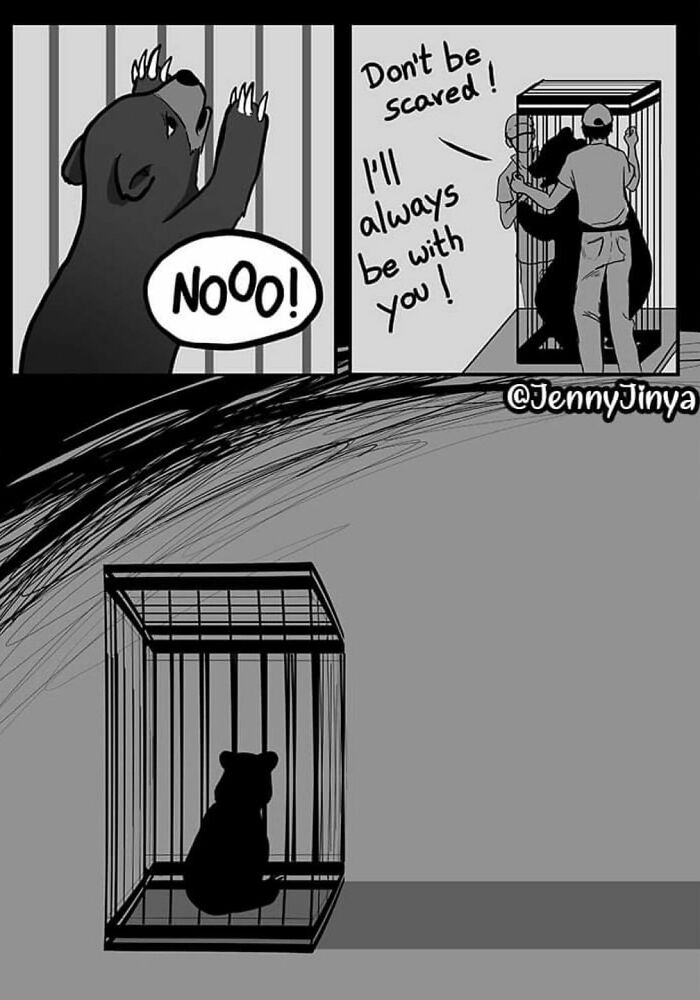
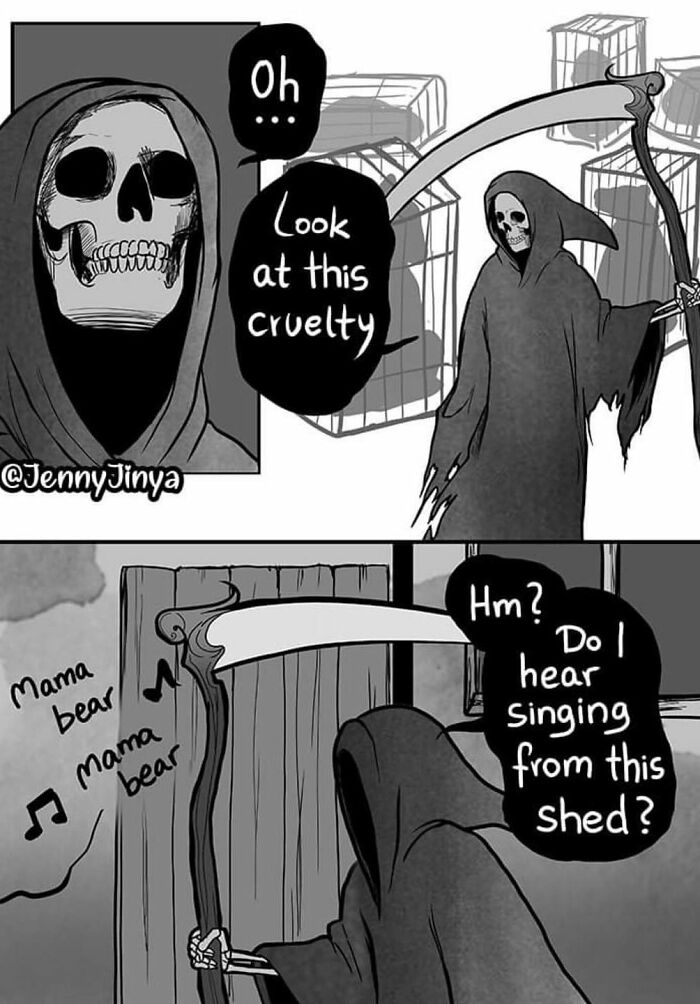
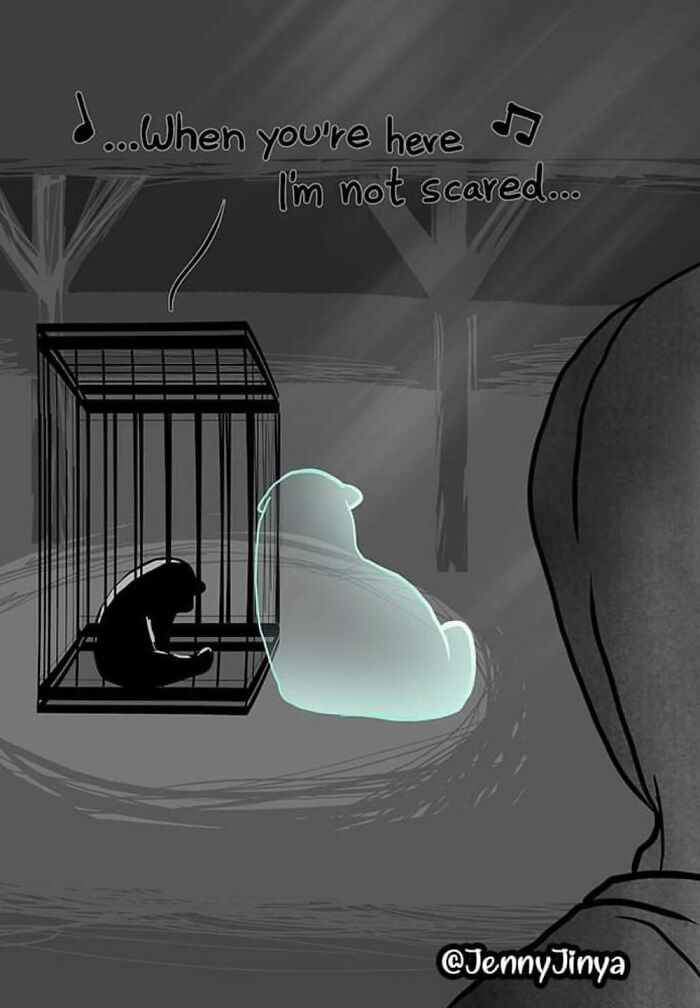
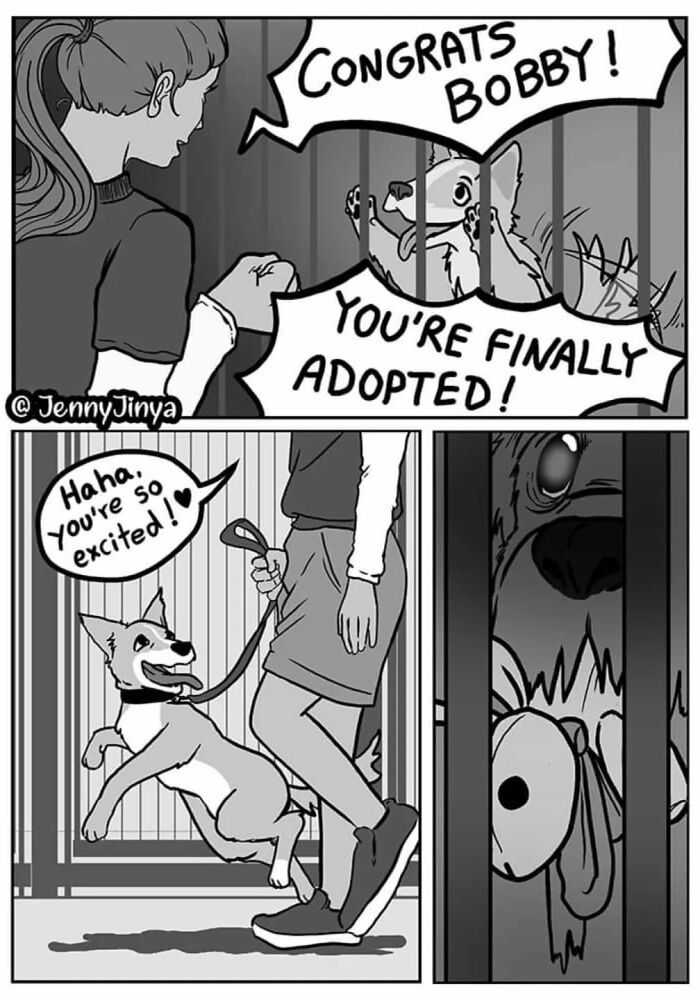
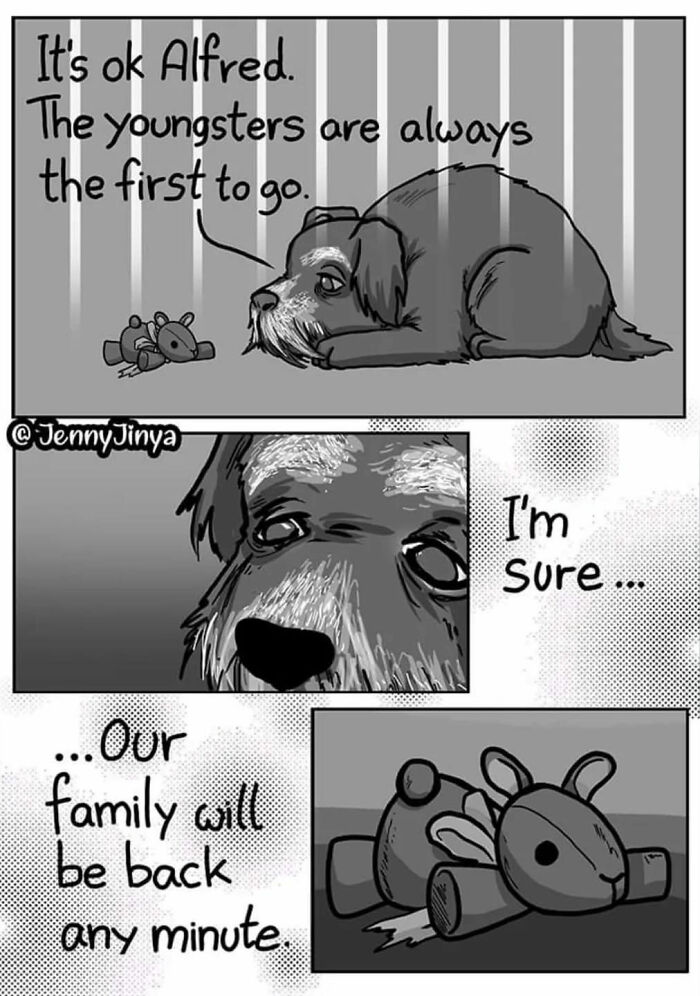
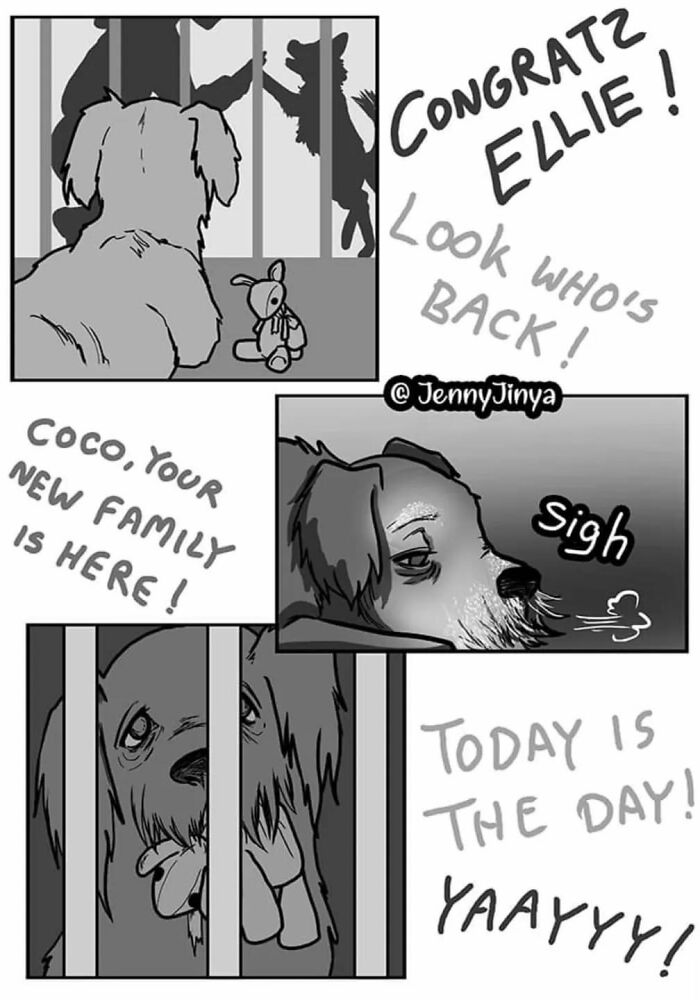
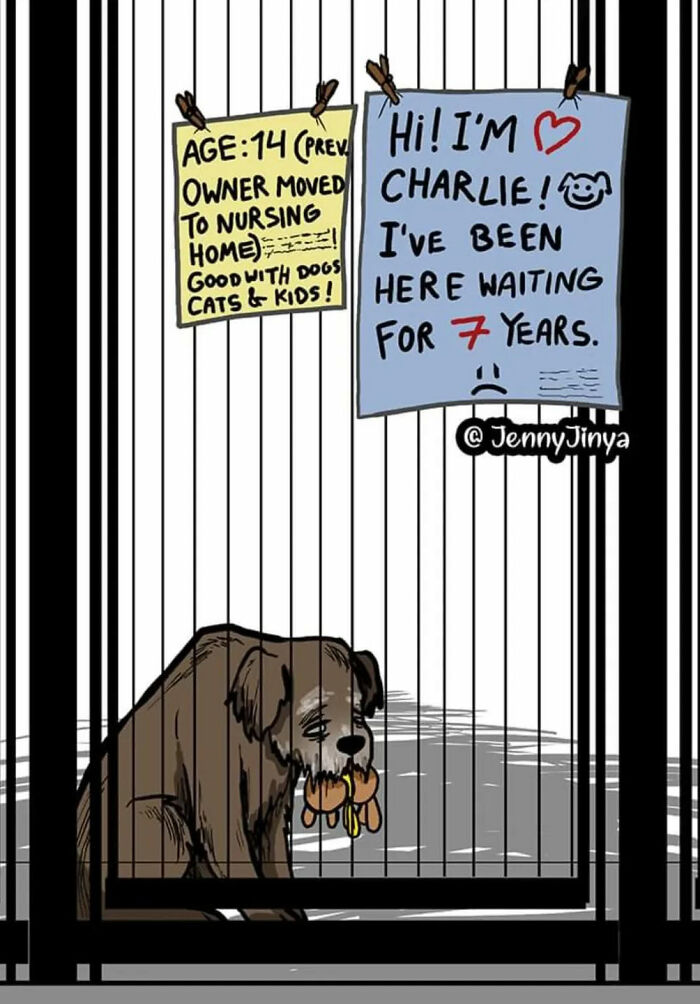
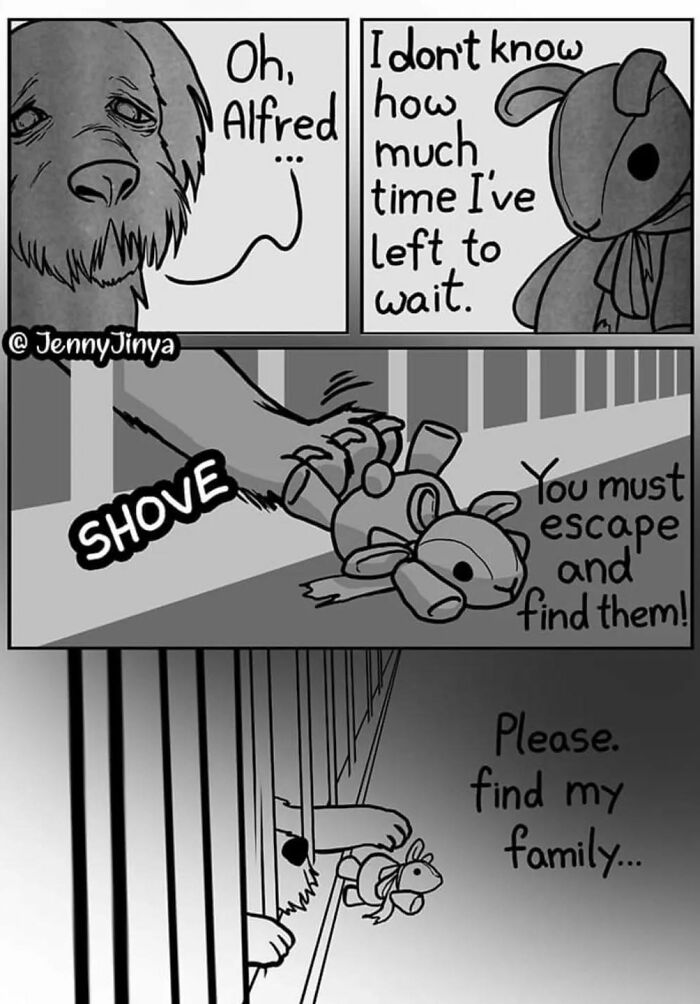
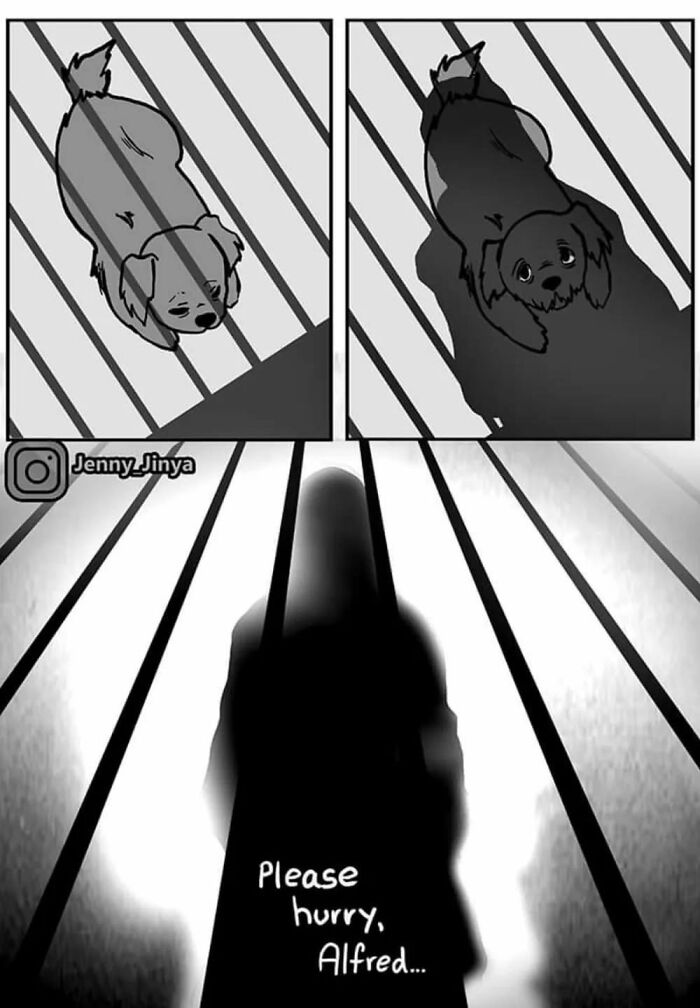
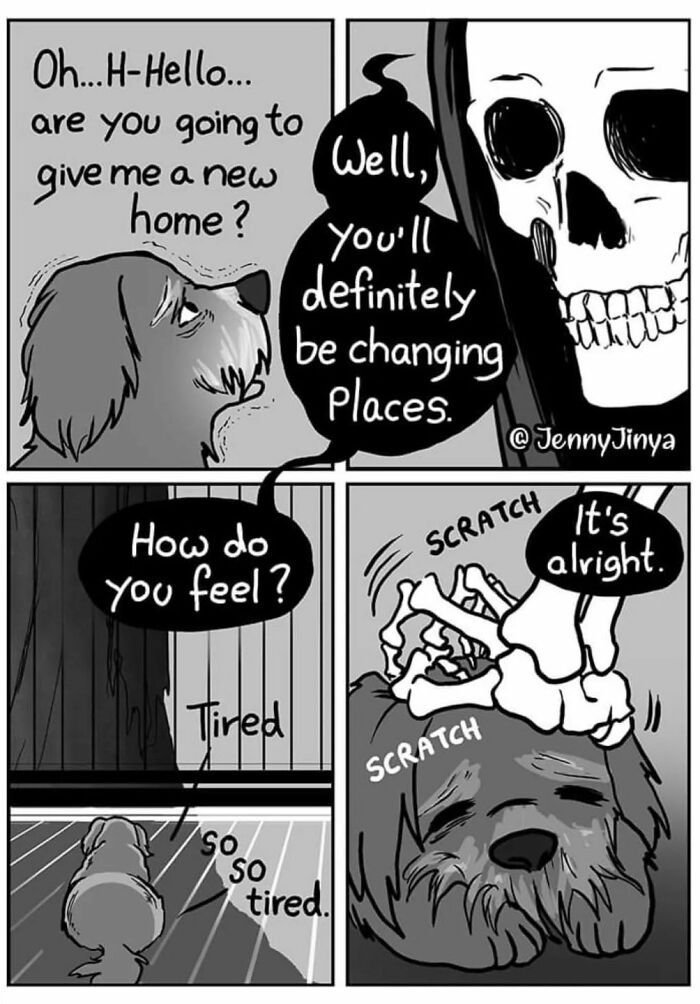
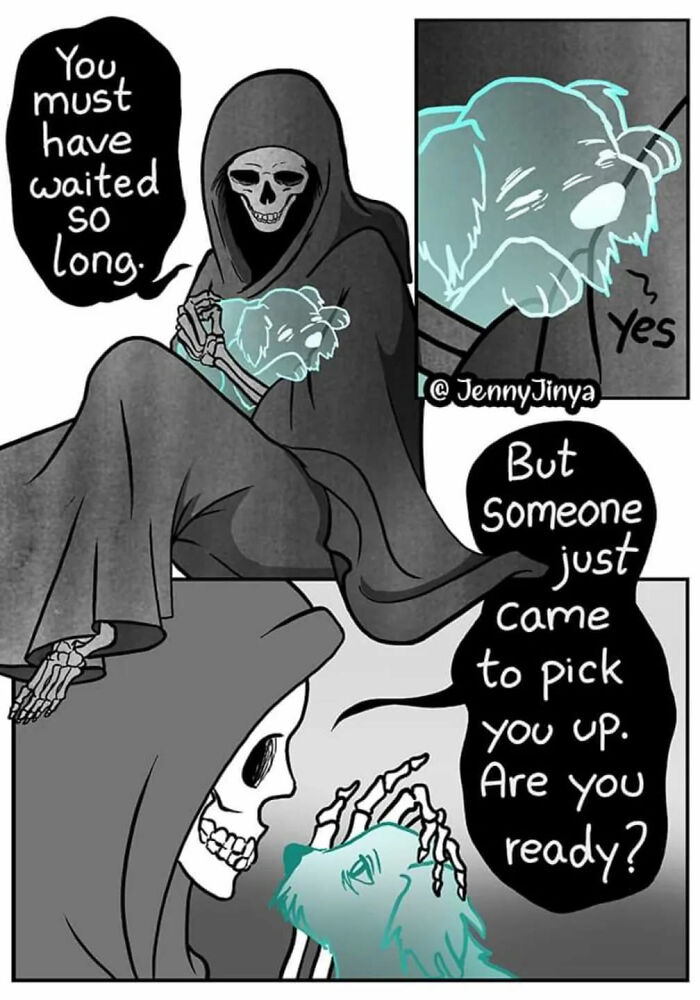
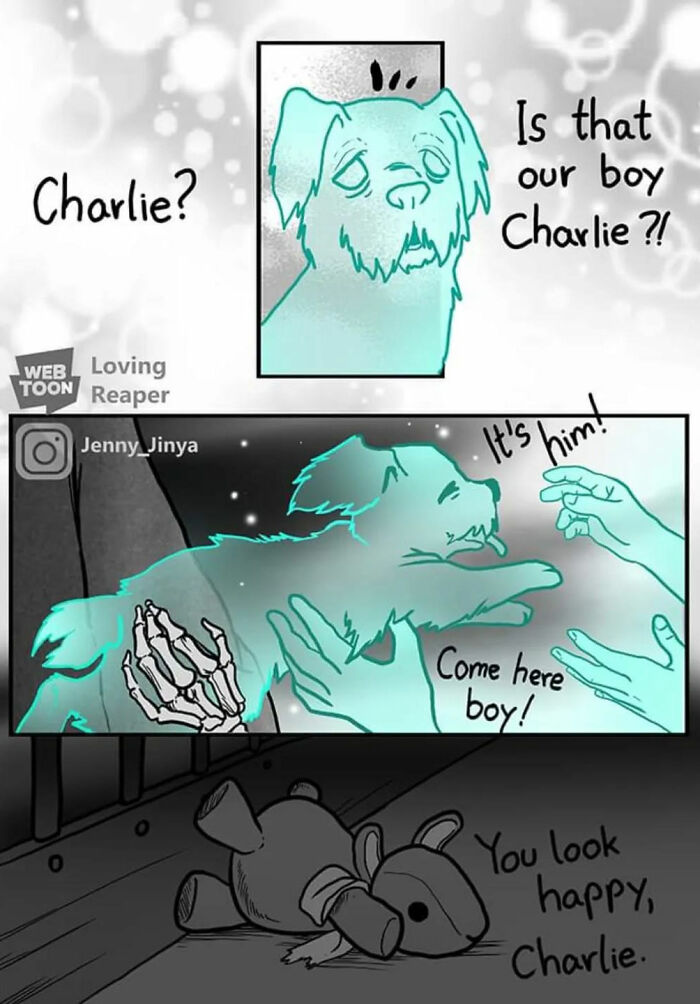
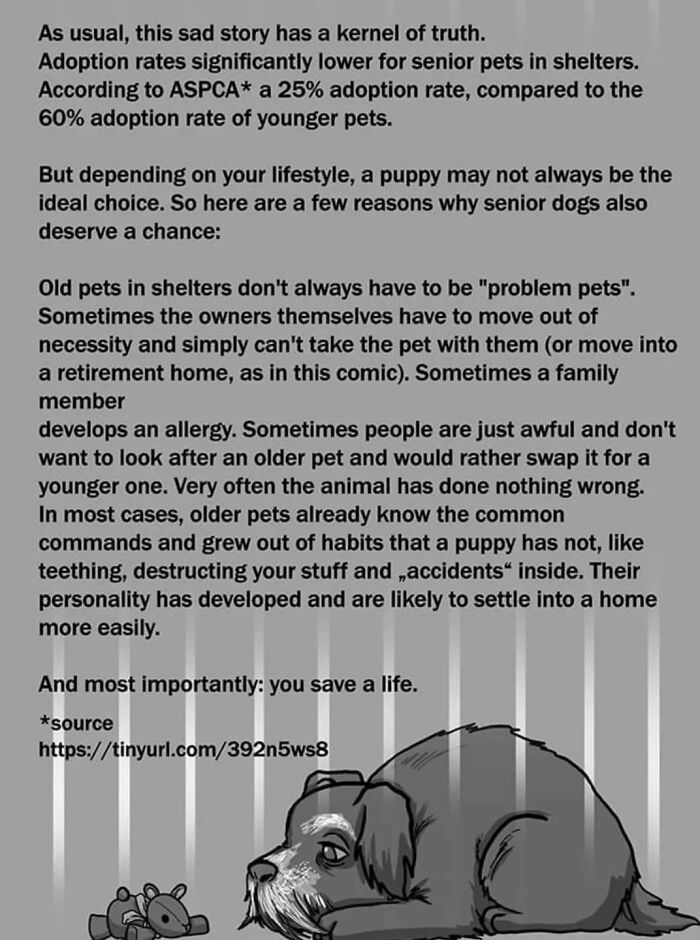
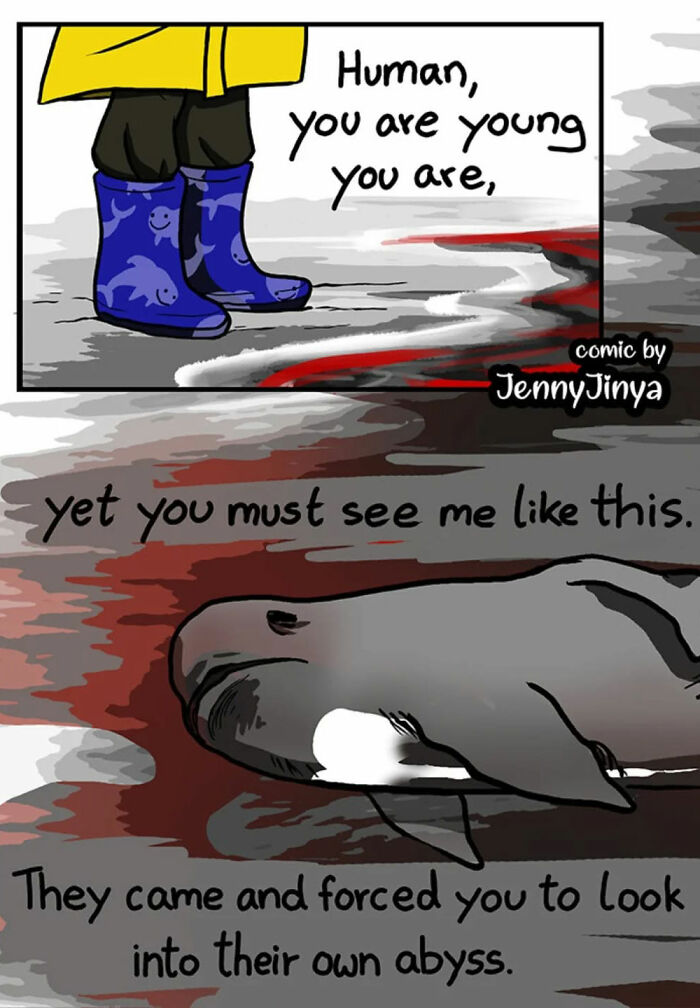
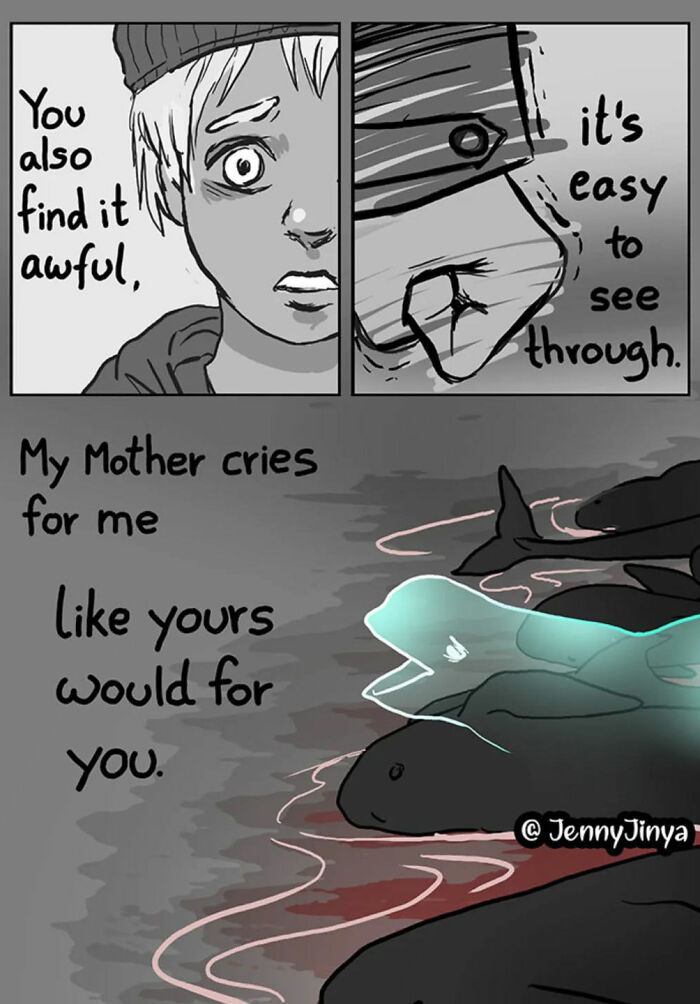
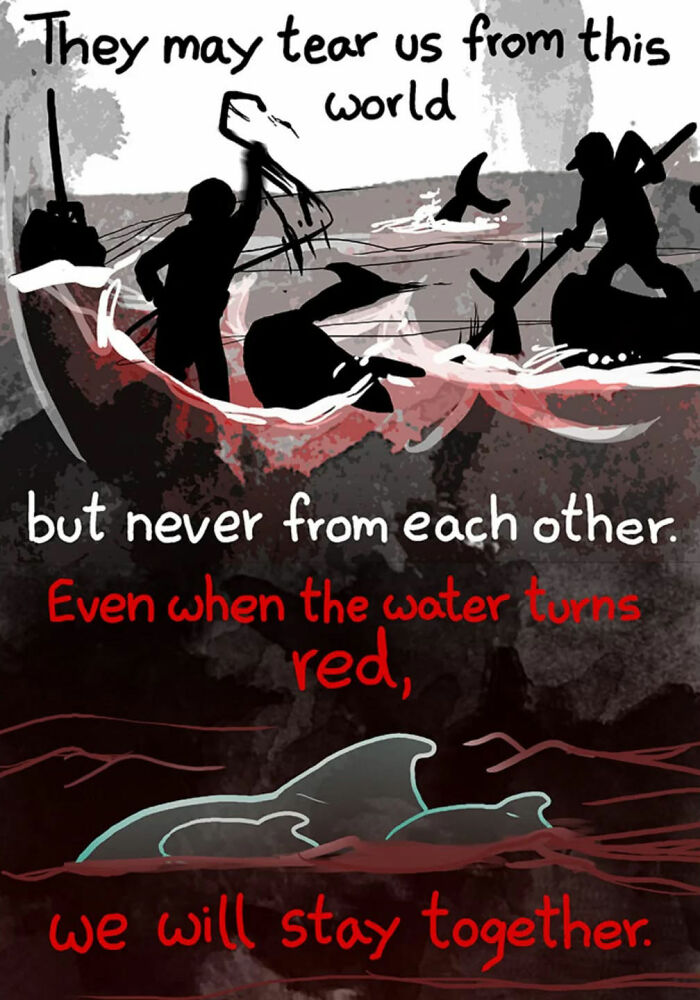
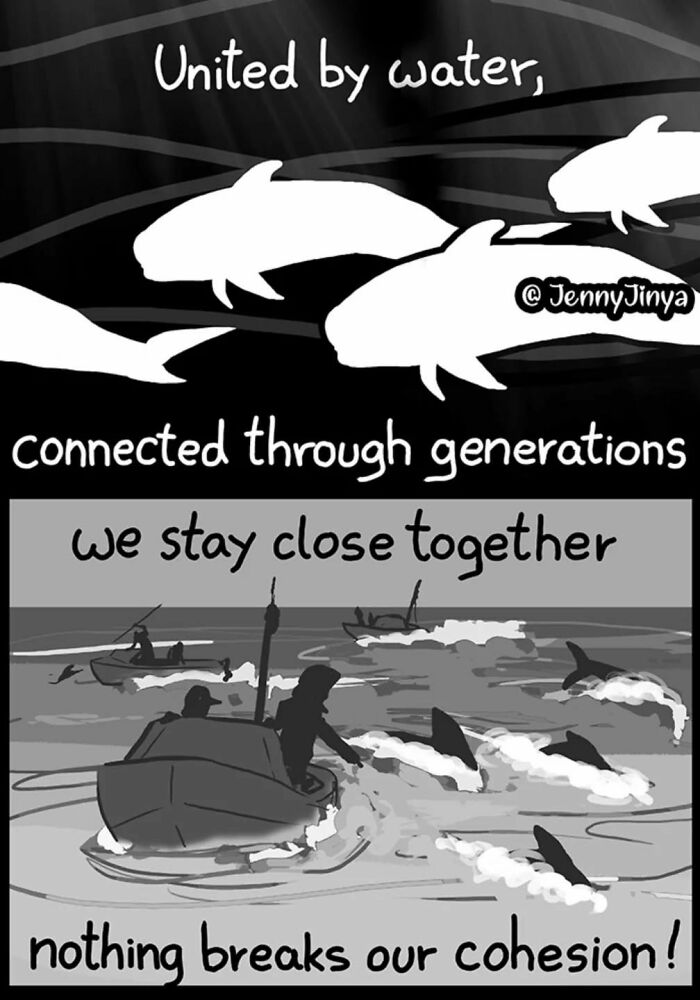
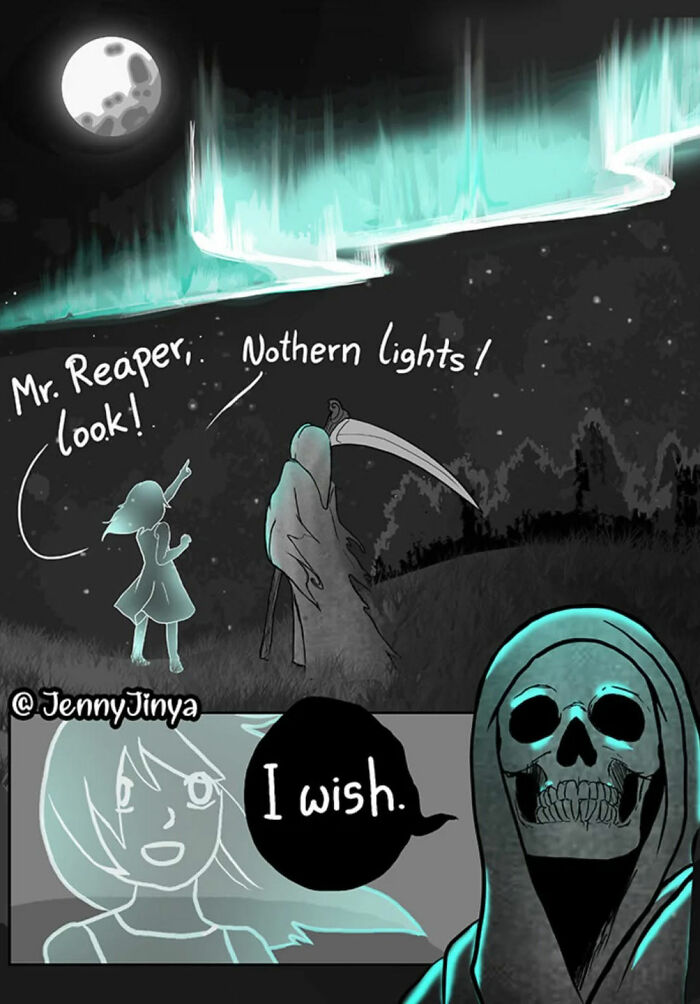
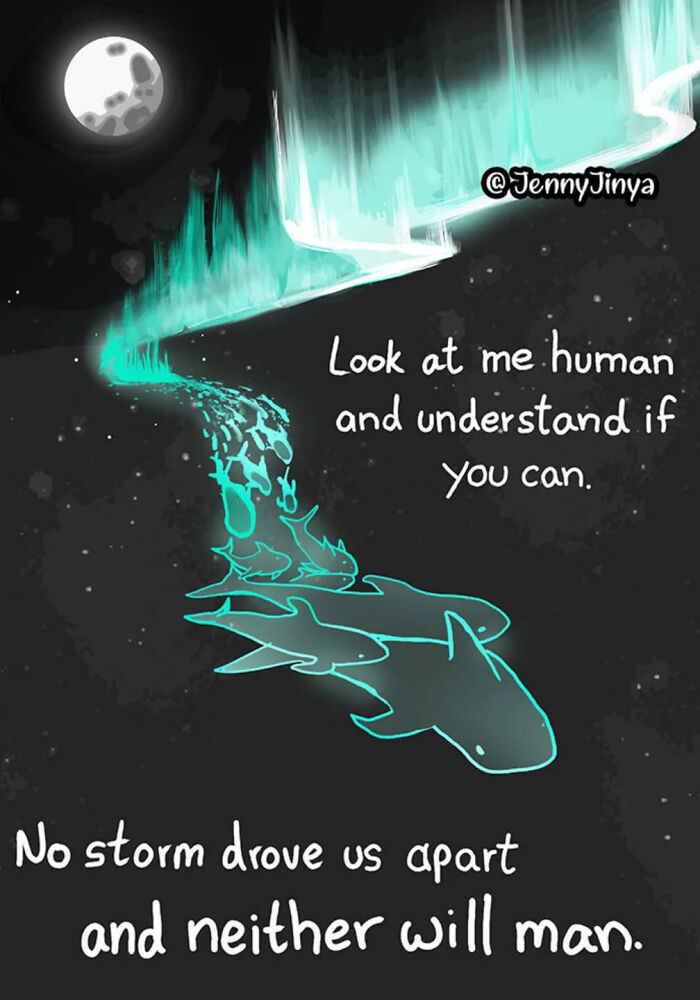




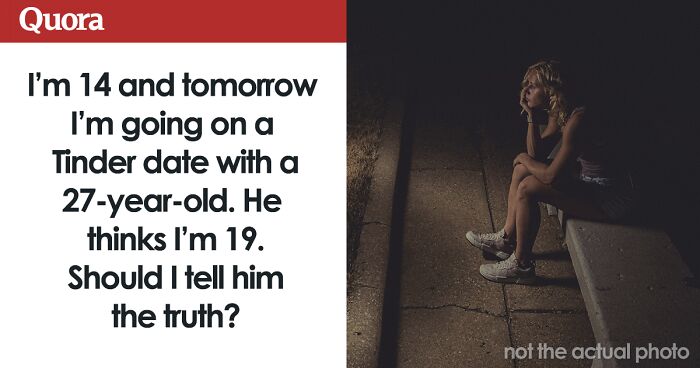

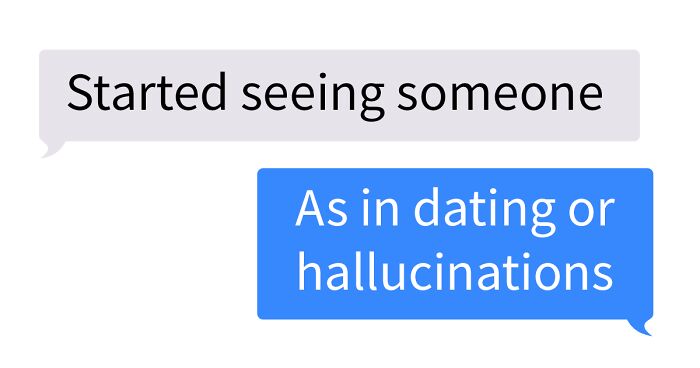
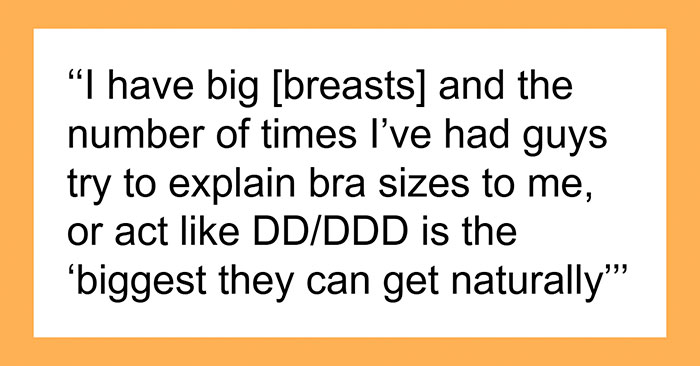


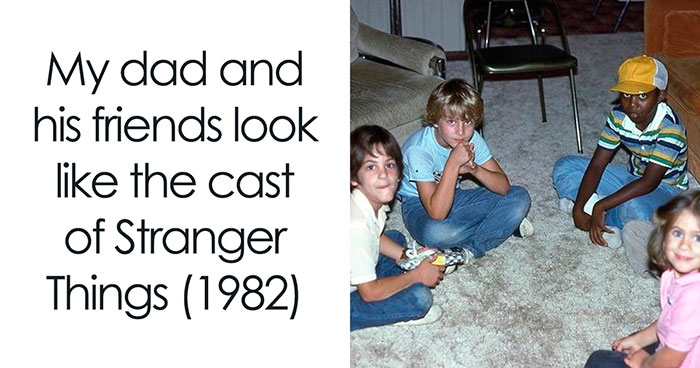


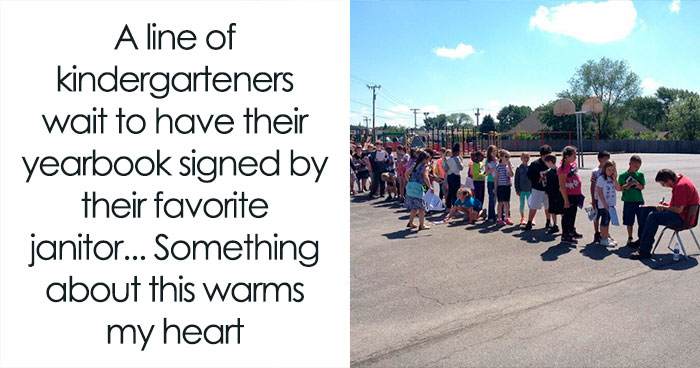





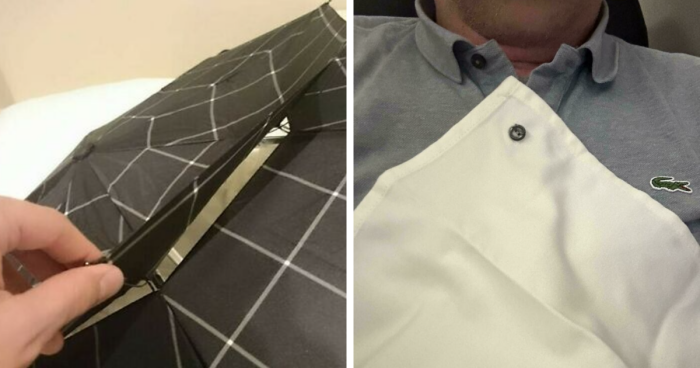
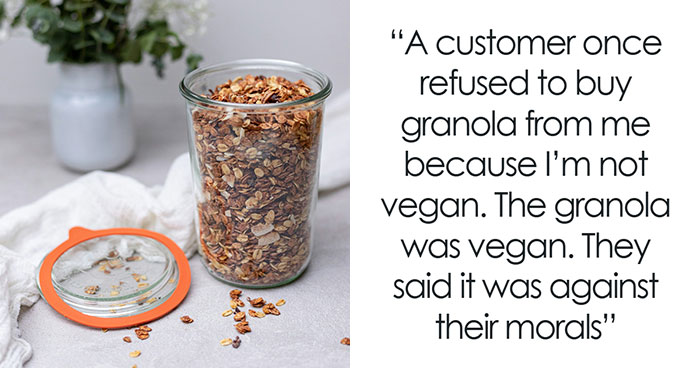



28
2